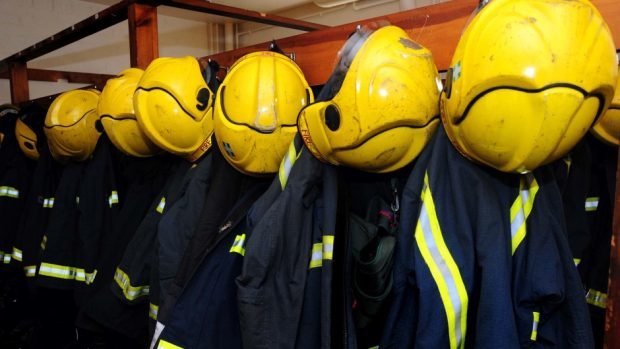More than 140 deliberate fires were started in the north and north-east in a two-month period in March and April last year, according to Scottish Fire and Rescue Service (SFRS) data.
The figures were released amid concern that Scottish firefighters are being called to thousands of wilful fire-raising incidents, each of which has the potential to put lives at risk.
In the two month period, Aberdeen had 38 fires and Aberdeenshire and Moray a further 49 between them. There were also 50 such incidents in the Highlands and five in the Western Isles, Orkneys and Shetlands.
Across Scotland, the incidents included building and vehicle fires and blazes in outdoor areas, such as fields and countryside, as well as refuse fire.
In the country as a whole, the SFRS figures showed crews attended 1,824 deliberate blazes between March and April in 2018.
>> Keep up to date with the latest news with The P&J newsletter
The figures were released as the fire service prepares for its “#StampItOut” spring campaign and called for a zero tolerance approach to fire-raising.
Although the figures marked a 34% reduction on the 2,782 deliberate fire calls that crews were mobilised to during the equivalent period in 2017, fire officers warned such behaviour could cost lives.
SFRS Deputy Chief Officer David McGown said: “Make no mistake, fire can cause injury and death and it can be devastating to properties, businesses and the environment.
“The fact that our firefighters are called to thousands of deliberately set fires each year is completely unacceptable.
“Firefighters exist to protect their communities, yet they are still being put at risk by a small minority of people who continue to deliberately set fires.
“Deliberate fires are not only reckless and dangerous, but can also divert SFRS resources away from genuine emergencies where people require our help.”
Mr McGown said: “We operate a strict zero tolerance approach to deliberate fire raising.
“This reckless and selfish behavior will not be tolerated and we will continue to work very closely with our police and local authority partners to provide evidence that will ensure those responsible are identified and held to account.
“It absolutely goes without saying that we prefer to prevent fires, not fight fires.
“As a result, our firefighters work extremely hard to engage with the public and promote safety messages and parents and carers can also help by making sure that children and young people are aware of the risks.
“It’s pleasing to note this reduction – but we will not be complacent and will always look at how we can continue to drive down deliberate fires.”
Superintendent Ian Thomson from Safer Communities at Police Scotland, said: “Wilful fire-raising can cause damage to property and lead to serious injury or loss of life.
“We continue to work with SFRS to make sure that investigations are carried out to consistently high standards and those responsible are brought to justice.”
